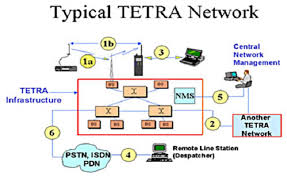VPNS (Virtual Private Network Systems): A Complete Guide to Secure Networking
telcomatraining.com – In today’s digital world, ensuring privacy and security while browsing the internet has become a top priority. Virtual Private Network Systems (VPNS) provide a robust solution to safeguard sensitive data and maintain online anonymity. Whether for personal use or business security, understanding how VPNs work and their benefits is crucial. This article explores the fundamentals of VPNs, their advantages, types, and best practices for secure networking.
What is a VPN?
A Virtual Private Network (VPN) is a technology that establishes a secure and encrypted connection between a user’s device and the internet. By routing internet traffic through a private server, VPNs mask the user’s IP address, making online activities untraceable. This encryption prevents unauthorized access, ensuring data security and privacy.
How Does a VPN Work?
When a user connects to a VPN, their data is encrypted and transmitted through a secure tunnel to a VPN server. This process involves the following steps:
- Encryption: The VPN client encrypts the user’s data before sending it to the server.
- Secure Transmission: The encrypted data travels through a tunnel, preventing hackers, ISPs, or government agencies from intercepting it.
- IP Address Masking: The VPN server assigns a new IP address, hiding the user’s real location and enhancing anonymity.
- Accessing the Internet: Once connected, users can browse securely, bypass geo-restrictions, and protect sensitive information.
Benefits of Using a VPN
1. Enhanced Security
VPNs provide strong encryption, protecting data from cyber threats such as hacking, phishing, and malware attacks.
2. Online Privacy & Anonymity
By hiding the user’s real IP address, VPNs prevent third parties from tracking browsing activities, enhancing online privacy.
3. Bypassing Geo-Restrictions
VPNs allow users to access region-restricted content, such as streaming services, websites, and applications blocked in specific locations.
4. Secure Public Wi-Fi Usage
Public Wi-Fi networks are vulnerable to cyber threats. VPNs encrypt connections, safeguarding data even on unsecured networks.
5. Avoid Bandwidth Throttling
Some Internet Service Providers (ISPs) limit bandwidth for specific activities. VPNs help bypass throttling, ensuring smooth browsing and streaming experiences.
Types of VPNs
There are different types of VPNs designed for various purposes. Understanding these types helps in choosing the best solution.
1. Remote Access VPN
- Used by individuals and businesses to securely connect to private networks from remote locations.
- Ideal for remote workers accessing company resources.
2. Site-to-Site VPN
- Common in corporate environments to connect multiple office locations securely.
- Establishes encrypted tunnels between branch offices and headquarters.
3. Mobile VPN
- Designed for mobile devices, ensuring continuous secure connectivity even when switching networks.
- Useful for field employees and travelers.
4. Cloud VPN
- Provides secure access to cloud-based resources and applications.
- Enhances security for businesses relying on cloud services.
Choosing the Right VPN Provider
When selecting a VPN service, consider the following factors:
- Security Features – Look for strong encryption (AES-256), no-logs policy, and secure protocols (OpenVPN, WireGuard, IKEv2).
- Speed & Performance – Choose VPNs with high-speed servers to prevent lag during browsing or streaming.
- Server Locations – A wide range of servers across different countries ensures better connectivity and access to geo-restricted content.
- User-Friendly Interface – Opt for VPNs with easy setup and intuitive applications.
- Customer Support – Reliable customer service is essential for troubleshooting issues.
Best Practices for Secure Networking with a VPN
To maximize VPN effectiveness, follow these best practices:
- Always enable VPN when using public Wi-Fi networks.
- Choose a reputable VPN provider with strong security features.
- Regularly update the VPN software to patch vulnerabilities.
- Avoid free VPNs, as they may log user data or contain malware.
- Use multi-factor authentication for additional security.
Conclusion
VPNs are essential tools for maintaining online privacy and security. Whether for personal or business use, they offer encryption, anonymity, and unrestricted access to content. By understanding how VPNs work and choosing the right provider, users can enjoy a safer and more secure online experience. Implementing best practices ensures maximum protection against cyber threats, making VPNs a valuable investment in today’s digital landscape.







